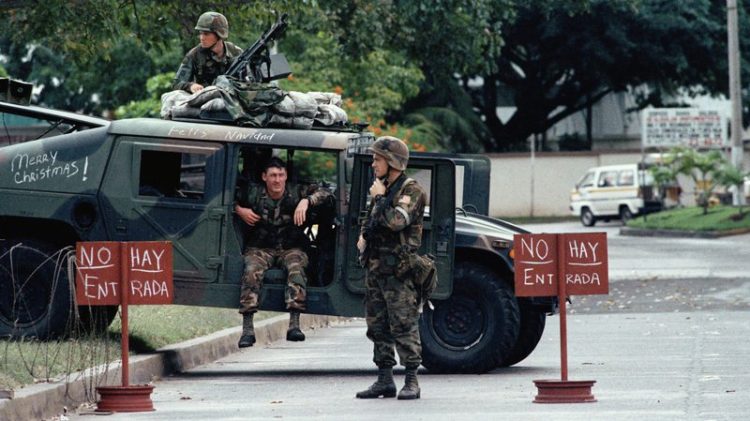Panama’s former dictator Manuel Noriega died in prison this week at the age of 83. Few, outside of his inner circle of military officers will shed a tear for the man who ruled Panama with an iron hand before his undoing by US forces during “Operation Just Cause” in late December of 1989.
With his military shattered and running out of options. Noriega sought refuge in the Papal Nuncio, the Vatican Embassy in Panama City. Many of his officers and cronies were already arrested and put on planes to Miami to answer to drug charges.
Rather than staying in relative peace and quiet, Noriega was blasted by rock music, loud rock music, around the clock as the US tried to force him to give up. The soldiers playing the music began taking requests from troops coming in from the field.
The favorites included “Welcome to the Jungle,” by Guns N’ Roses, “Wanted Dead Or Alive,” by Bon Jovi, and “The End” by The Doors.
After several days on the run, Noriega was allowed to enter the Vatican Embassy on Christmas Eve. And on Christmas Day, the radio station broadcast only Christmas music.
But with requests streaming in, the U.S. effort ramped up after the holiday.
On Dec. 27, “someone who identified himself as a member of the PSYOPS [Psychological Operations] team from Fort Bragg [N.C.] called to tell us what they were doing with their loud speakers,” the military report said.
U.S. Gen. Maxwell “Mad Max” Thurman had ordered speakers placed as a “musical barrier” around the perimeter of the Vatican Embassy and turned to full volume.
Noriega was reportedly partial to opera. What he got was “Panama,” from Van Halen, “Danger Zone,” from Kenny Loggins, and “Refugee,” courtesy of Tom Petty.
And remember, this was the ’80s. So the strongman also got an earful of Rick Astley’s “Never Gonna Give You Up,” though that may have been intended more for Noriega’s hosts at the embassy.
As the standoff dragged on for days, the playlist became part of the story.
Not everyone was happy with the military’s approach, including the White House, and the music was stopped after several days. President George H.W. Bush’s national security adviser, Brent Scowcroft, said afterward that he thought the use of high-volume music was “undignified.”
On Jan. 3, 1990, Noriega surrendered to the U.S. forces, though not until after he’d been treated to a version of “I Fought The Law.”
Noriega was flown to Miami, tried and convicted of drug trafficking, and spent nearly two decades in U.S. prisons.
The entire musical interlude while waiting for the disgraced strongman to surrender placed a surreal, farcical quality on an operation and short war that never needed to happen. Noriega’s blustering caused the deaths of far too many Panamanians, the exact number may never be known as well as 23 Americans.
The entire article and interview from NPR can be found here:
Featured Photo: AP










COMMENTS